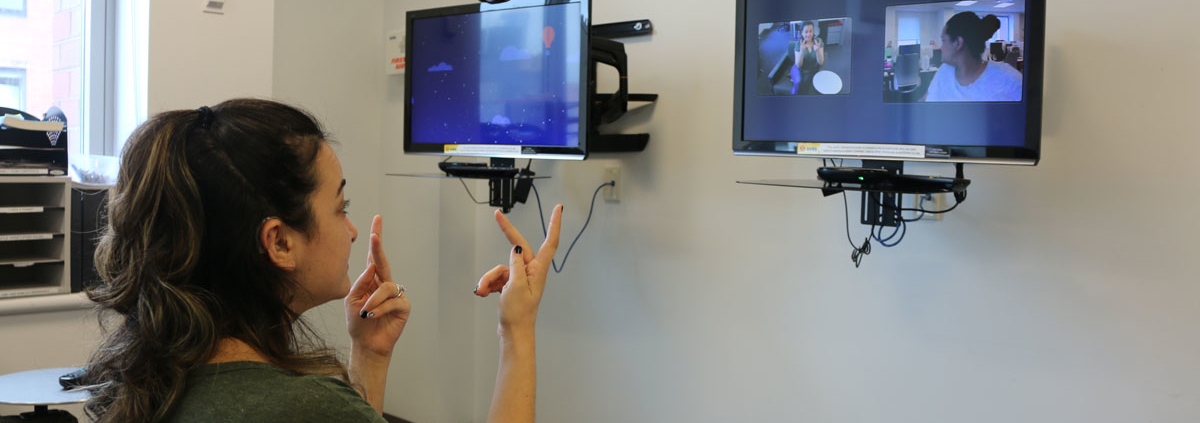Q & A with Members of our Deaf Services Team
At The Foundling, we are proud of the work we do to help members of the Deaf and Hard of Hearing Community. We provide in-home services to families, help individuals access the tools they need to succeed, work with schools and provide resources and other essential services and programs to nearly 100 families each year.
Below is a Q&A with members of our Deaf Services Team to bring greater awareness and attention to the work they do each and every day. We are pleased to share this blog post during Deaf Awareness Week. Many of the men and women who are a part of this vital team at The Foundling are also Deaf or Hard of Hearing—this gives them the ability to meet with clients without an interpreter.
What’s a typical day like at work?
“Mostly meeting with families in their homes, attending school meetings or other collaborative meetings to support or help families, make referrals to other services, completing paperwork (e.g., case notes and treatment plans) advocating for our Deaf participants or educating service providers or other family members on Deaf culture or Deaf rights.”
-Esther K.
What is your connection to the Deaf and Hard of Hearing Community?
“I am a Deaf individual, raised by a Deaf family. I have always been in the community. The community is starting to grow professionally and academically but this needs more push. More awareness!”
-Diana A.
What are some misconceptions people have towards those who are Deaf and Hard of Hearing?
“Deaf and hard of hearing people are dumb, mute, aggressive, can’t do anything on their own.”
-Amelia S.
“Many people assume that Deaf people have some kind of deficits that make them unable to do things like drive or parent children or even work.”
-Esther K.
What can be done to make New York City more accessible to the Deaf and Hard of Hearing community?
Captioning or video interpreting in the waiting area or in local offices (e.g., Social Security, HRA, and many more). All places should have video interpreter to communicate with Deaf and Harding of hearing while they wait for ASL interpreter to arrive.
-Lynda S.
What are some of the challenges members of the deaf and hard of hearing community face living in New York City?
“Communication accessibility”
-Coralia A.
“Lack of language accessibility; Difficulty advocating for their rights as a Deaf person due to the majority of services providers having little to no experience or awareness regarding how to interact with Deaf persons or how to request and secure interpreters. Various daily challenges navigating the ‘hearing world”
-Anna P.
What types of services and programs does The Foundling’s Deaf Services Division offer families?
“Parenting classes and support, case management, referrals and links to community resources and direct in-home support. Most of our case planners are social workers and have clinical skills and while the program is not clinical or therapeutic, more often than not, staff are providing direct therapeutic support to the families they work with”
-Anna P.
“They [are] helping families that are deaf or hard of hearing to find anything they need”
-Destiny R.
Is there anything else you would like to share with people outside The Foundling?
“Our Preventive Service Program is amazing as all staff here sign and we are very familiar with the resources in New York City. However there is only so much we could do. More support is needed!”
-Diana A.
“Our workers work their hardest to fulfill the needs of our families.”
-Emilio H.



